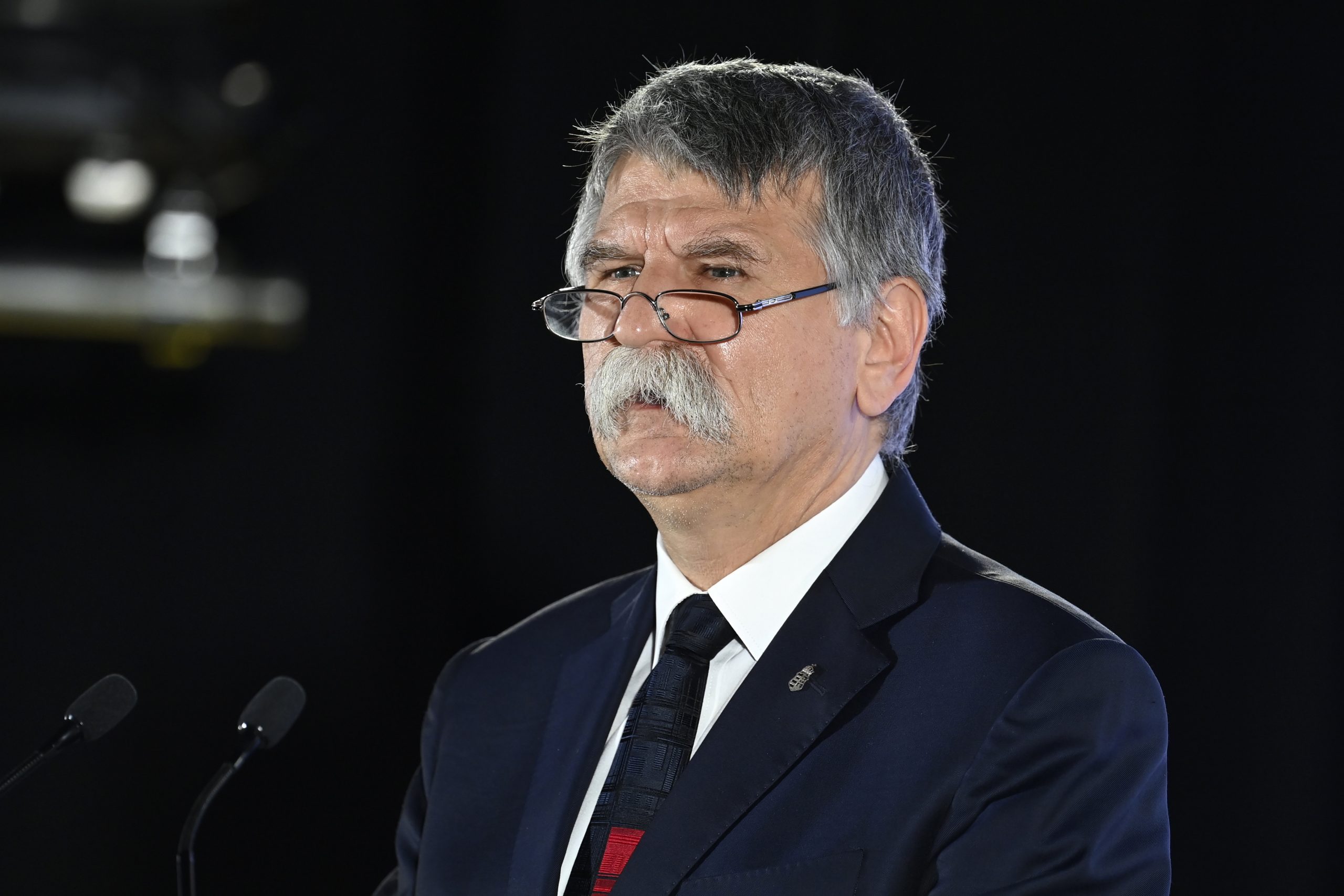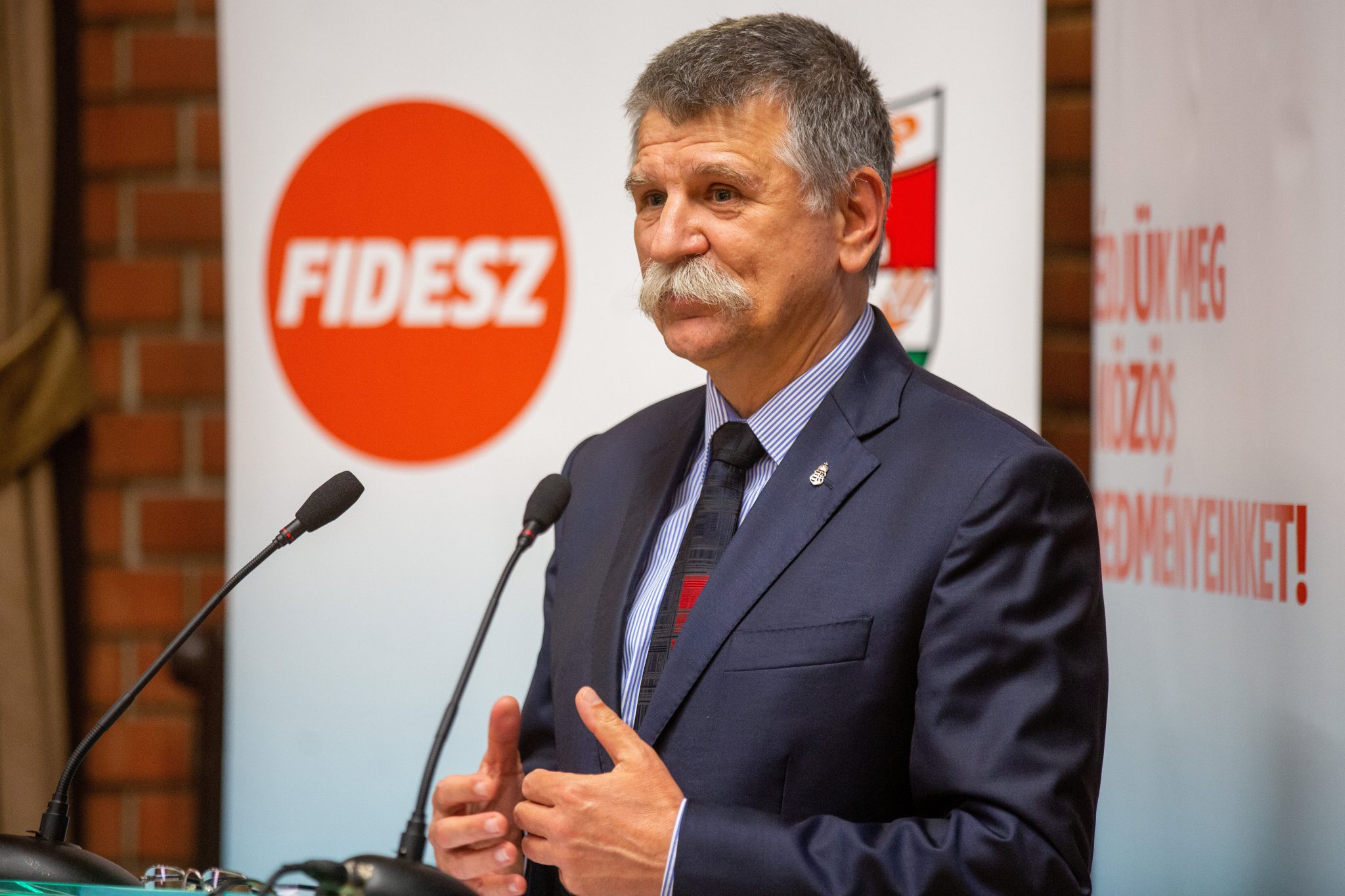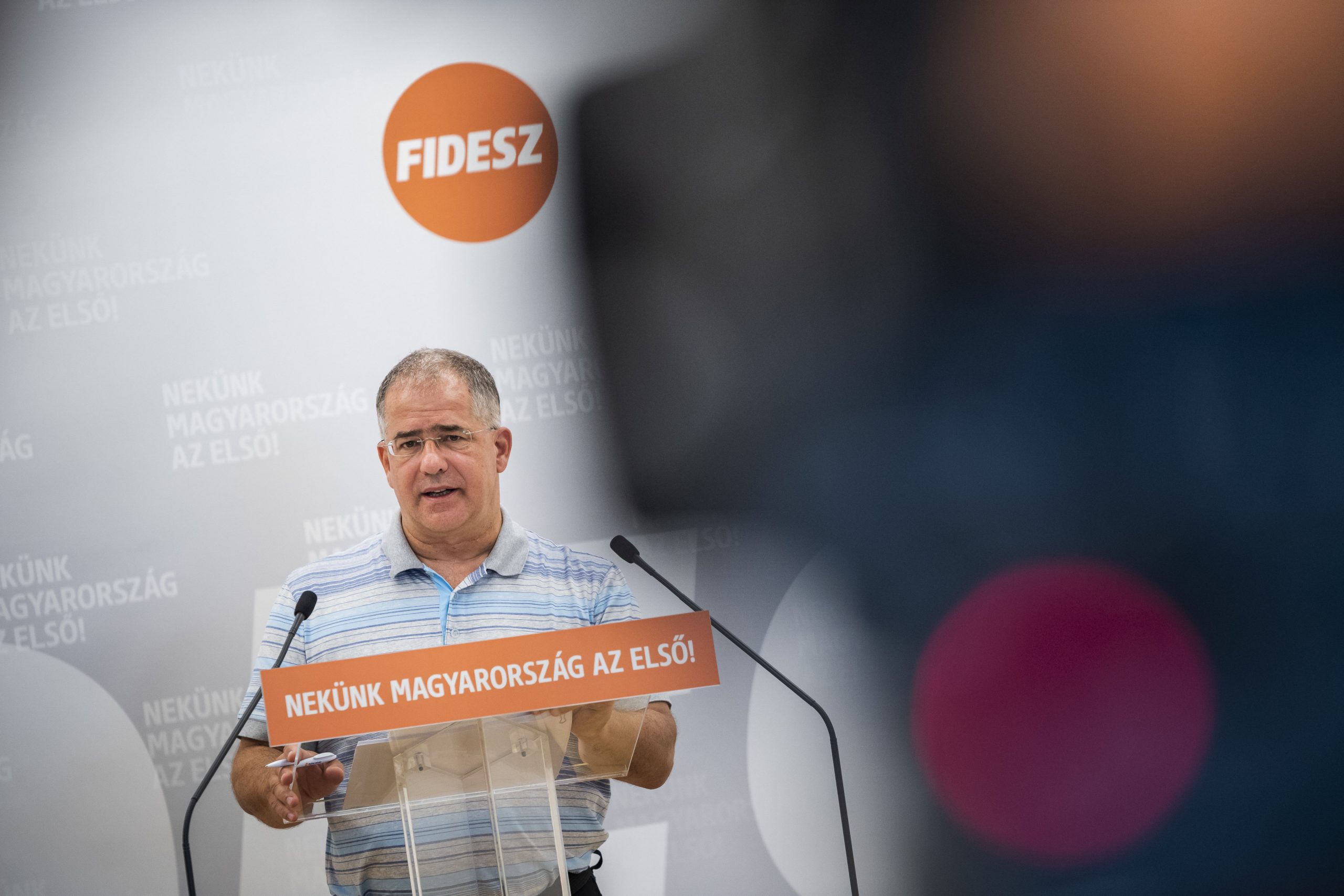
A controversial speech made by László Kövér has been unveiled, in which the Speaker of the National Assembly told officials of Hungarian national security that the greatest national security risk Hungary faces lays within its political elite. He argues that the opposition “operates in a tradition of a self-sacrificial statehood and self-destructive nation politics.” The Fidesz strongman also said that “laws and institutions are important, but in times of crisis, character, values, and loyalty are paramount.” A recording of the speech was accessed and reported on by investigative news outlet Direkt36.
On February 28, 2020, László Kövér spoke behind the closed doors of the Constitution Protection Office to current and former officials of Hungarian national security, on the 30th anniversary of the Special Service for National Security.
The speech has stirred up significant controversy, since not only was it kept away from the public for almost two years, but because it was made in front of Hungarian national security officials. The Speaker argued that the current political divide is the same as that which lead Hungary into chaos following the First World War, that the modern state of international politics is shaped by a battle between nations and transnational political interest groups.
Fact
At the beginning of his speech, Kövér pointed out that he had previously been a member of Parliament’s national security committee for almost twenty years, and served as Minister without portfolio for Civilian Intelligence Services for the first Orbán government. Thus, he felt it appropriate to refer to the security officials as his “respected colleagues.”
Kövér: Two Rival Views in Hungarian Politics
The Speaker of the National Assembly explained that there are two camps in Hungarian politics. He did not clearly name who belongs where, but it is clear that he refers to Fidesz on one side and the opposition on the other.
One side of the Hungarian political class thinks, believes, and works toward a self-governing state with a shared national consciousness. The other side operates in a tradition of a self-sacrificial statehood and self-destructive nation politics.”
Kövér added that it was the same self-destructive nation politics which lead Hungary to chaos after the First World War. He said that “the most significant problem,” Hungary faced after the war “was that within the Hungarian political elite of the period, there was no fundamental agreement on the interpretation of state and nation, and there was no independent, effective Hungarian force which served national security.”
Related article
House Speaker Kövér: "This opposition is not part of the Hungarian nation but a servant to that world elite"
The Hungarian left-liberal opposition is part of a “globalist network working against the nation”, feeding Western European propagandists with fake news and slander, House Speaker László Kövér said in an interview to pro-Fidesz weekly Demokrata. Regarding Hungarian legislation to contain the novel coronavirus epidemic, foreign objections and criticisms were “one and the same” as the […]Continue reading
He affiliated “the other side” of today with the same destructive politics of both the demilitarizing government of Mihály Károlyi, who placed his utmost trust in Western countries, as well as the Soviet dictatorship of Béla Kun.
The Fidesz politician said that while multiple other internal and external risks could be named by security officials, he asked them to believe his view that “a self-determined and self-conscious Hungary is capable of meeting any challenge, while a Hungary of self-abandonment and self-destruction can only fall to dust in the face of any threat or challenge.” This statement made even clearer Kövér’s argument that, in his view, the opposition poses a threat to Hungary’s national security.
Kövér: Transnational Forces Threatening the EU
Kövér made the issue an external threat as well, stating that while national security forces faced other national security forces and criminal organizations during the Cold War, the modern European sphere is faced with threats from transnational actors. Thanks to their financial backing, the influence of these organizations and interest groups, “is far greater than the power of most nation states.”
According to the Speaker of the National Assembly, the last major, united goal of the Hungarian political elite was Euro-Atlantic integration. Since then, “the differing views of interpreting state and nation have been made increasingly clear.”
He spoke of this destructive element in Hungarian politics on an international level too, saying that in EU and NATO operations,
They see the opportunity of favorably ending the class struggle which their predecessors started more than one hundred years ago, and which they have now continued for thirty years with the help of internationalist aid.”
Thus, according to him, European Union is left with two choices; to either be a link or a conflict zone for the United States and Russia. “Every European nation needs to decide whether it will give in to the political interests groups spanning beyond national borders with no democratic legitimacy, or whether it will stand against them in the protection of national sovereignty.”
In conclusion, Kövér said that “In the times we now face, everyone needs to decide whether they are going to serve or whether they are going to give up the state and the nation.”
Opposition Circumscribed as Threat to National Security and Use of Pegasus on Hungarian Targets
Kövér did not refer to any party or group specifically on one side or the other (other than a reference to Google’s annual revenue almost matching Hungary’s GDP), but in an interview he gave in April of 2020, he said that “the Hungarian left-liberal opposition is part of the globalist, anti-national network.”
He concluded his speech by emphasizing his trust in Hungary’s national security services, adding that “laws and institutions are important, but in times of crisis, character, values, and loyalty are paramount.”
However, he also added that “In your profession, loyalty does not have to mean ideological identity with one political camp or another. For you, loyalty to your superiors, to your state and to your nation means loyalty to the professionalism and legality of the operational work you do.” The statement seems to clash with the main, indirect message of his speech, according to which the national security forces should take the same road as the political camp which favors the nation’s interests.
If my greatest worry for national security operations stems from Hungarian politics, I must also say that I have the greatest level of trust in the present and prospective leaders and officials of national security (…) Hungarians willing to act in the interest of protecting a sovereign, self-determining nation are counting on you, respected colleagues.”
Direkt36 highlights how Hungarian law on national security underlines that one of the most important tasks of the civil service is to protect a “representative democracy based on a multi-party system.”
The speech leaves a lot of questions in the air, especially now that the Hungarian government was confirmed to have been using NSO Group’s Pegasus spyware. Accused of using it on political opponents and journalists, such a justification of political actors as national security threats in this speech could justify, according to this view, acts of surveillance on these individuals.
Related article
Fidesz Politician Admits Purchase and Use of Pegasus Spyware
The opposition's reactions go as far as demanding the Orbán administration's resignation.Continue reading
The rather alarming language used in the speech remained unpublished until Direkt36 shared its content with the Hungarian public on Saturday. According to the investigative journalists, the speech was only published on Kövér’s official page after Direkt36 had sent his office a series of questions along with the recording on November 25.
Opposition parties have begun calling for Kövér’s immediate resignation over the speech, but the House Speaker and the governing party have yet to make a statement on the matter.
Featured photo illustration by Tamás Kovács/MTI


